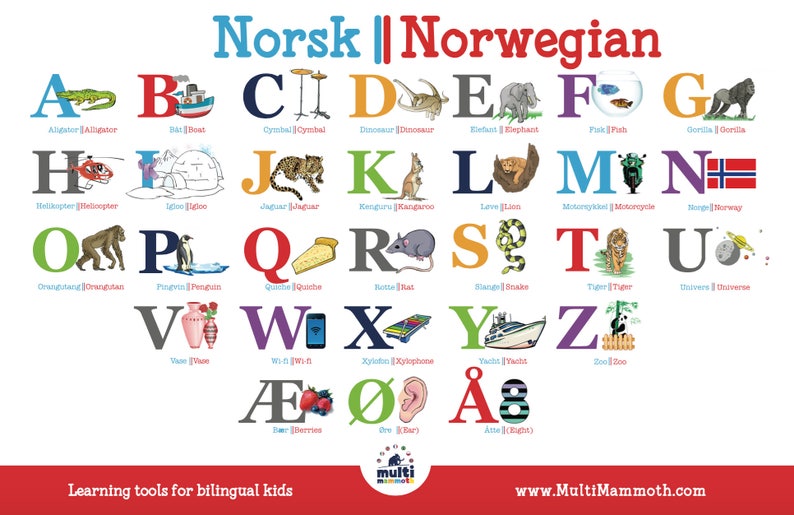

NORSE TO ENGLISH SERIES
Unlike Icelandic and Faroese, which were isolated, the development of English was influenced by a long series of invasions of the British Isles by other peoples and languages, particularly Old Norse and Norman French. English is not mutually intelligible with any continental Germanic language, differing in vocabulary, syntax, and phonology, although some of these, such as Dutch or Frisian, do show strong affinities with English, especially with its earlier stages. Like Icelandic and Faroese, the development of English in the British Isles isolated it from the continental Germanic languages and influences, and it has since diverged considerably. Particular dialects of Old and Middle English also developed into a number of other Anglic languages, including Scots and the extinct Fingallian and Forth and Bargy (Yola) dialects of Ireland. Old English evolved into Middle English, which in turn evolved into Modern English. Low German/Low Saxon is also closely related, and sometimes English, the Frisian languages, and Low German are grouped together as the Ingvaeonic (North Sea Germanic) languages, though this grouping remains debated. The Frisian languages, which together with the Anglic languages form the Anglo-Frisian languages, are the closest living relatives of English. Old English originated from a Germanic tribal and linguistic continuum along the Frisian North Sea coast, whose languages gradually evolved into the Anglic languages in the British Isles, and into the Frisian languages and Low German/Low Saxon on the continent. Yiddish A family tree of the West Germanic language familyĮnglish is an Indo-European language and belongs to the West Germanic group of the Germanic languages. It exists on a dialect continuum with Scots and then is most closely related to the Low Saxon and Frisian languages. Thus, despite a majority of its vocabulary coming from the Romance branch of the Indo-European language family, Modern English is genealogically classified under the Germanic branch. Then, the Middle English period borrowed words extensively from French dialects, which contributes approximately 28% to Modern English vocabulary, and from Latin, which also provides about 28%.

The late Old English period absorbed some grammar and core vocabulary from Old Norse, a North Germanic language. Old English began as a group of dialects emerging among the West Germanic-speaking Anglo-Saxons who settled Britain. English accounts for at least 70% of speakers of the Germanic language branch. It is a co-official language of the United Nations, the European Union, and many other international and regional organisations. English is the primary language of the Anglosphere, which is usually defined as the United States, the United Kingdom, Canada, Australia, and New Zealand, as well as of the Republic of Ireland, and it is also widely spoken in areas of the Caribbean, Africa, South Asia, Southeast Asia, and Oceania. Įnglish is named after the Angles, one of the ancient Germanic peoples that migrated to the island of Great Britain, and its speakers are called Anglophones. As of 2005, it was estimated that there were over two billion speakers of English. There are more people who have learned English as a second language than there are native speakers. English is the most widely learned second language and is either the official language or one of the official languages in 59 sovereign states. Originating in early medieval England, today English is both the most spoken language in the world and the third most spoken native language, after Mandarin Chinese and Spanish. For an introductory guide on IPA symbols, see Help:IPA.Įnglish is a West Germanic language in the Indo-European language family.

Without proper rendering support, you may see question marks, boxes, or other symbols instead of Unicode characters. This article contains IPA phonetic symbols. Countries and territories where English is an official or administrative language but not a majority native language


 0 kommentar(er)
0 kommentar(er)
